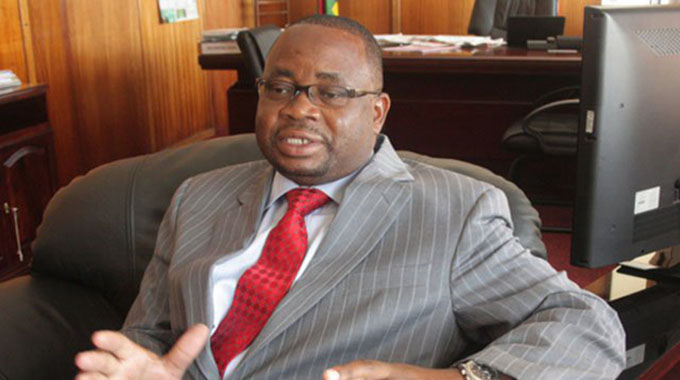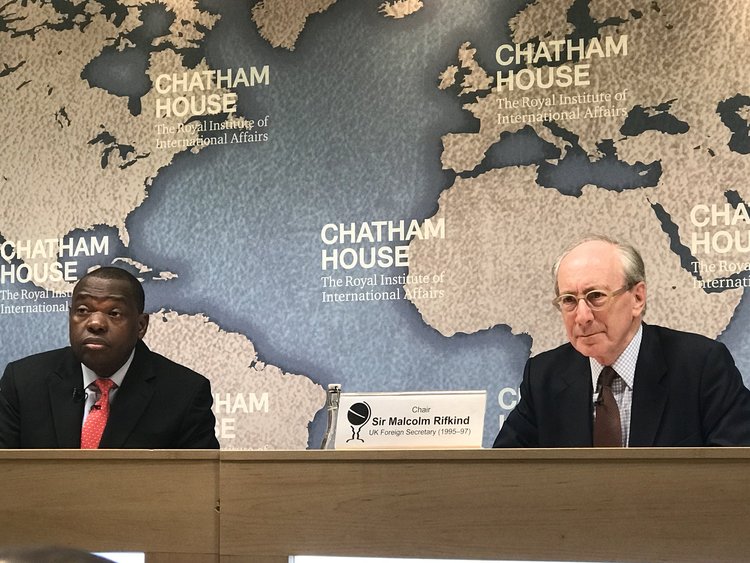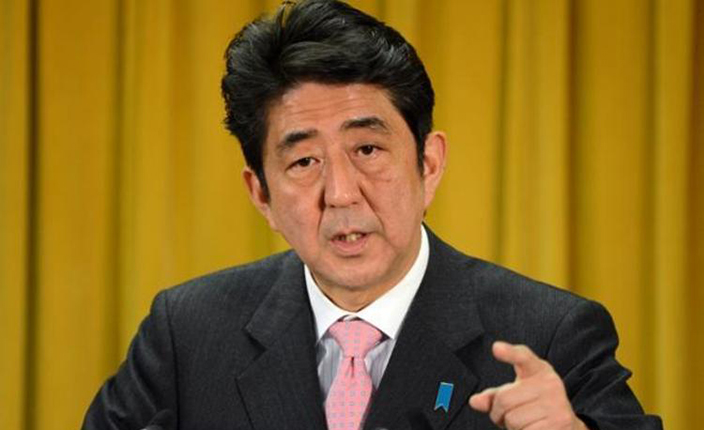Financing key to accessing quality education for all

Rumbidzai Ngwenya Features Writer
The Government must stick to its promise to prioritise the funding of the education sector in order to achieve Sustainable Development Goal 4 (for quality education) and the Education 2030 Framework for Action. Education lobbyists said Primary and Secondary Education Minister Paul Mavhima recently made a bold pledge to finance the country’s education sector when he attended an education financing conference in Dakar, Senegal, recently.
The conference discussed issues related to fair and equal financing of education, as well as threats to public education systems around the world.
Education Coalition of Zimbabwe (ECOZI), one of the organisations that advocates for inclusive quality education and equitable education for all, is pushing for the Government to deliver on education funding and for it to keep their promise in order to improve the education sector in Zimbabwe.
ECOZI national coordinator Maxwell Rafomoyo told The Herald that it was important to hold the Government accountable in terms of the education financing process.
“We recognise that there is still a long way to go to ensure that the full SDG4 Agenda is met, so we need to scale up our momentum through the active participation of citizens in holding their governments accountable,” he said.
Poor education funding remains a big challenge in Zimbabwe and this has resulted in a poor learning environment with inadequate equipment and learning materials.
According to the Education Commission, current levels of investment in education are critically low. To reach the Sustainable Development Goal for quality education (SDG 4), global spending on education must rise annually from $1,2 trillion per year to $3 trillion by 2030.
“If we do not act urgently, we are likely to miss the 2030 deadline for these goals by more than 50 years,” an education lobby group said at the Dakar conference.
“Failure by world leaders and governments to act by pledging boldly and credibly to increase financing towards education in 2018 will definitely delay SDG 4 2030 target.”
Educational lobby groups which were present in Dakar reminded the world on the challenges of access and quality of education.
They said these could not be resolved without adequate and sustained financing to the sector.
A global education report stated that households are now contributing close to 30 percent of their income towards paying for school, a worrying trend that is highest in middle and low-income countries.
“Unfortunately, most middle and low-income countries that depend on domestic resources to #FundEducation have continued to grant huge tax holidays to profitable multinational companies from rich nations. It is evident that households are now paying more taxes than multinationals towards funding education and national development,” the lobby network said.
This week, Zimbabwe joins the rest of the world to mark the Global Action Week for Education (GAWE), a Global Campaign for Education’s flagship annual event.
The commemorations will be held under the theme: “Accountability for SDG4 through Citizen Participation.”
The theme aims to help keep the focus of holding governments and the international community accountable for a full implementation of the Social Development Goal 4 (SDG4) asking them to “Keep your promises” to work towards financing public, equitable, inclusive and free education for all.
During a Global Partnership for Education (GPE) Financing Conference, Minister Mavhima together with other donors pledged to finance the country’s struggling education sector.
The minister said Zimbabwe in a new dispensation was determined for a new trajectory for a sustained socio economic transformation and the realisation of the country’s full potential.
“Zimbabwe has provided for the attainment of fit for purpose outcome by all learners at quality schools and with competent teachers,” he said.
“Central to the goal is implementation of a new curriculum framework and the education sector strategic plan 2016 to 2020.
“As percentage public recurrence expenditure for the years 2018, 2019 and 2020 is 39,9 percent, 37,5 percent and 35,9 percent which is $1,16 billion, $1,19 billion and $1,21 billion.”
Education funding in Zimbabwe had remained critical with the country relying mostly on donors.
However, the pledge offers a turn around to the Zimbabwean situation and ECOZI believes that this week affords them a unique opportunity to hold the Government accountable for its commitments to funding education.
“The next phase of our engagement globally as civil society must be to maintain pressure on governments to ensure that the promises they made to achieve SDG4 are kept,” said Rafomoyo.
He said active citizen participation through democratic governance processes that GAWE is aiming for had the potential to speed up the achievement of SDG4 by 2030.
SDG4 aims to ensure inclusive and equitable quality education and promote lifelong learning opportunities for all.
“We recognise that there is still a long way to go to ensure the full SDG4 Agenda is met, so we need to scale up our momentum through the active participation of citizens in holding their governments accountable,” the local lobbyist said.
GPE supports governments to implement robust education sector plans. It also encourages partnerships with developing countries like Zimbabwe to allocate 20 percent of their national budget to education, with a significant proportion (45 percent for primary education.
According to UNICEF 2015, while a respectable percentage of the national budget was allocated to primary and secondary education, $803,8 million or 23 percent of total budget in 2016, 98 percent was spent on the wage bill.
Non-salary expenditure was currently only $13 million a year, which equates to $3,34 per year per child, and families were increasingly called upon to shoulder most of the costs of school facilities and supplies.
The education sector in Zimbabwe therefore remains reliant on donor support to make up the shortfall in non-recurrent Government expenditure.
While donor support is currently essential to the day to day running of the country’s schools, lobbyists believe in the long-term domestic financing model to be at the core of sustainable funding for the education sector in the country.
“The biggest question that we have as a coalition is that where is the Government’s commitment when it comes to financing education,” queried Rafomoyo.
The majority of the poor have no easy access to education due to poor funding of the sector.
“The pledge made by the Minister in Dakar should be fulfilled,” Rafomoyo said. “Education financing is the backbone to accessing quality inclusive education for all in any country.
“It is also a driving factor that will make Zimbabwe achieve SDG4 and our national education goals as a country hence we are pushing for the Government to be accountable.”
As parents are shouldering the greater burden of responsibility in financing the education system through school fees, the equitable resourcing of schools remains the greatest challenge facing Zimbabwean education.
Not only are some children still unable to attend school due to lack of funds, schools in disadvantaged communities are unable to raise sufficient funds to provide a quality education for all.
The level of fees and levies collected at each school varied substantially in accordance with the parents’ ability to pay.
The current arrangement of heavy reliance on highly variable fees has created a system in which the parents’ ability to pay determines the availability of infrastructure and learning materials available in a particular school, perpetuating existing inequalities, lobbyists argue.
Social safety nets such as BEAM, have not helped much due to fiscal constraints.
If Government does not fulfil its pledge, quality inclusive education for all may remain a mirage and the typical Zimbabwean student may continue to suffer.










Comments